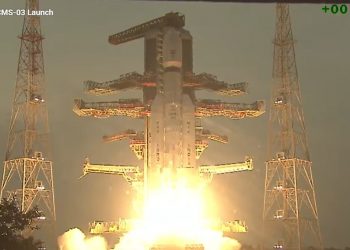Pune, Maharashtra | Heavy truck manufacturer Blue Energy Motors, known for its LNG and electric-powered commercial vehicles, announced on Thursday that it has signed an initial agreement with the Maharashtra government to set up a new manufacturing facility with an annual capacity of 30,000 trucks. The project represents an investment of ₹3,500 crore.
According to Anirudh Bhuwalka, Founder and Managing Director of Blue Energy Motors Ltd, the company has already invested USD 50 million in its existing operations. “Our goal is to sell 30,000 heavy-duty electric and LNG-powered trucks cumulatively over the next five years,” Bhuwalka told PTI.
Earlier in the day, the company unveiled its first heavy-duty electric truck equipped with swappable battery technology, along with the launch of India’s first electric highway corridor between Mumbai and Pune.
The corridor was inaugurated by Maharashtra Chief Minister Devendra Fadnavis, who hailed the milestone as a significant advancement in sustainable transport. “This launch showcases Maharashtra’s leadership in sustainable innovation,” Fadnavis said, describing the event as a ‘Tesla Moment’ for the Indian freight industry.
He added that Blue Energy Motors’ “Made-in-India electric truck with battery-swapping technology, along with the Mumbai–Pune corridor, aligns with the national vision of Atmanirbhar Bharat and a greener, self-reliant future.”
Bhuwalka noted that more than 1,000 LNG-powered Blue Energy trucks are already operational, giving the company a 60% market share in India’s green trucking sector.
The company currently operates a manufacturing facility in Chakan (Pune), with a production capacity of 10,000 trucks per year. Backed by Essar and FPT Industrial (Iveco Group), Blue Energy Motors first introduced its LNG-powered truck in September 2022.
Anshuman Ruia, Director at Essar, said, “This launch marks a milestone in India’s decarbonisation journey. It reinforces our commitment to cleaner energy, advanced technology, and sustainable logistics — driving the shift toward a low-carbon and resilient economy.” marking a major step toward green freight mobility.









Discussion about this post